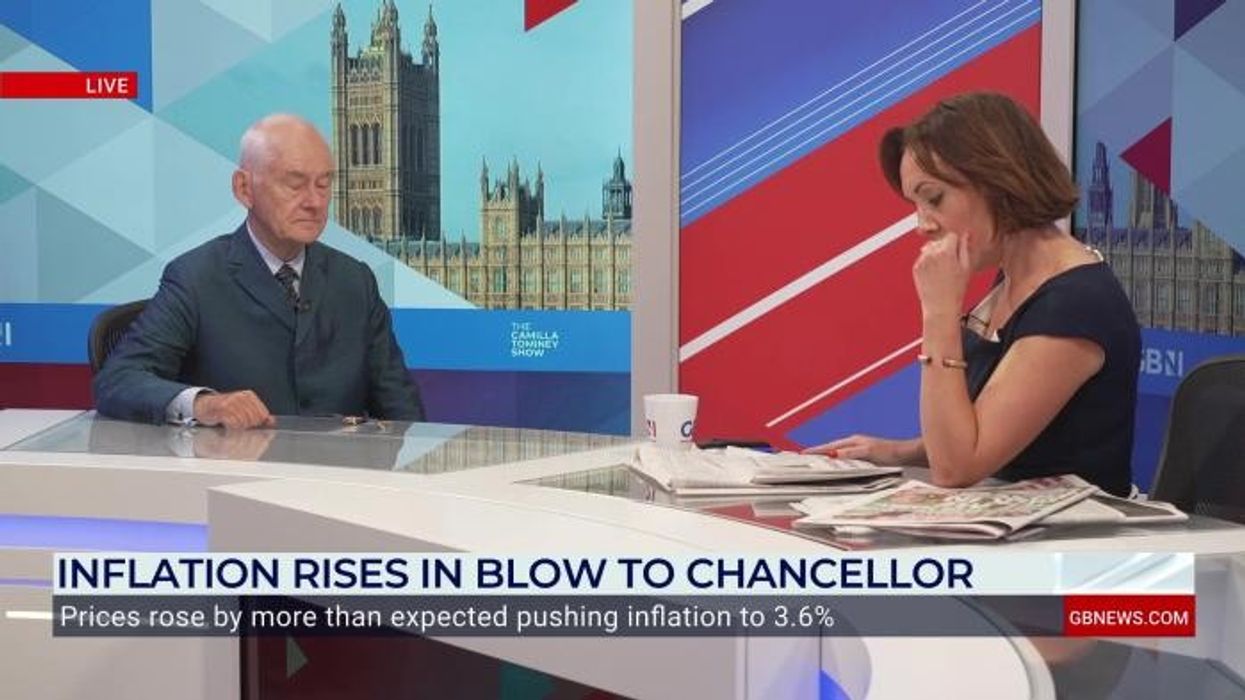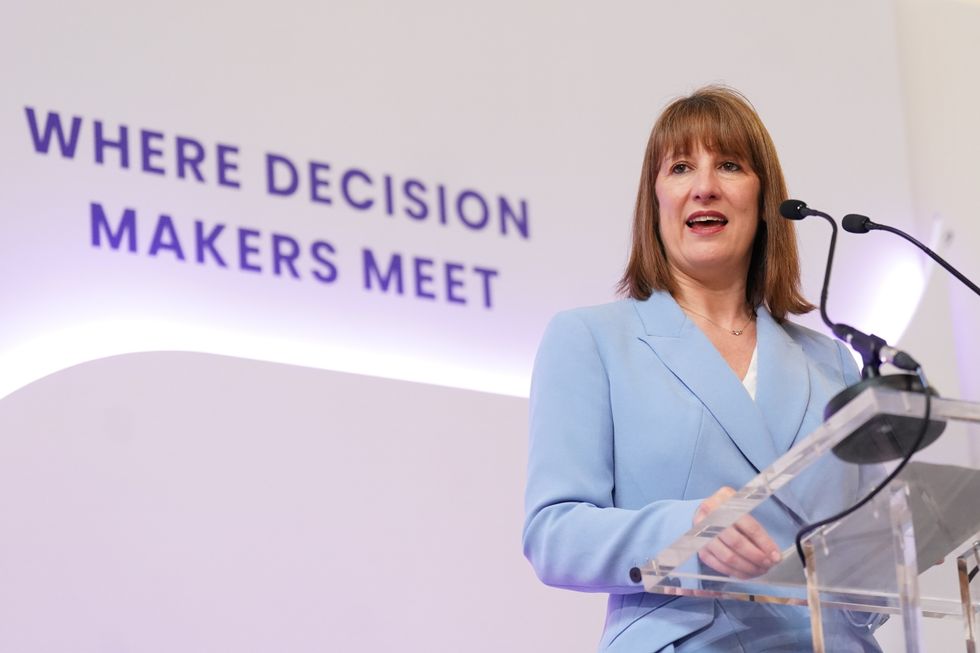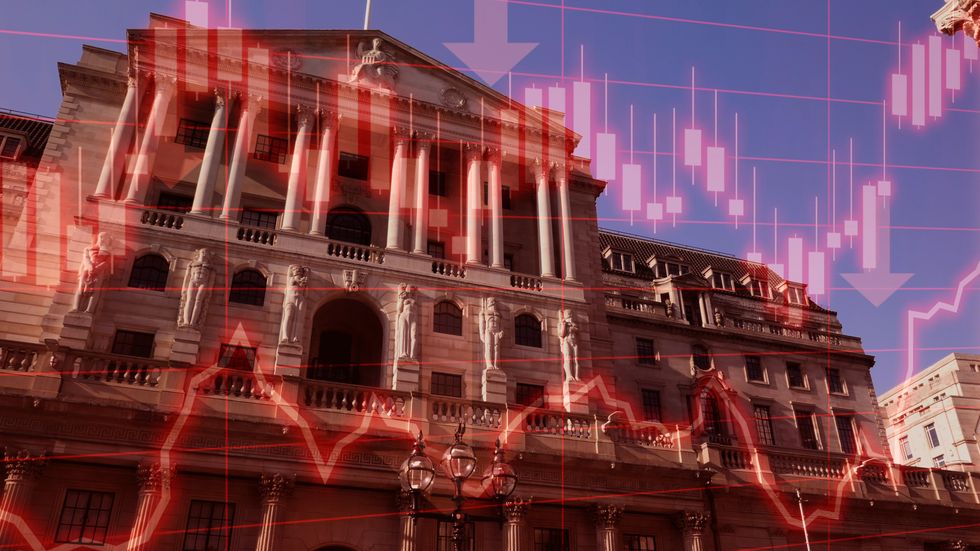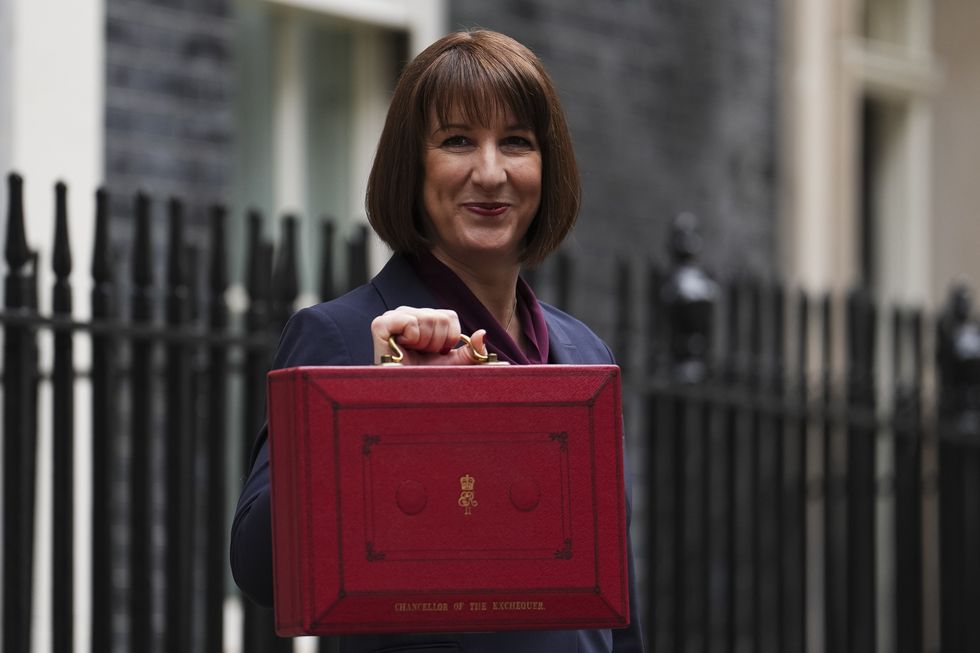Recession fears grow as Rachel Reeves warned tax rise needed in Budget to 'keep the ship afloat' - which ones could be hit?

Lord Moynihan predicts Britain will enter recession |
GBNEWS

The UK’s high household savings rate and falling tax revenues are adding to Rachel Reeves' pressure ahead of the autumn Budget
Don't Miss
Most Read
Latest
Britain faces a potential recession if Chancellor Rachel Reeves fails to implement tax increases and stimulate economic expansion in her upcoming autumn Budget.
An expert has warned that persistently weak growth threatens the Government's fiscal strategy, creating pressure for revenue-raising measures.
The Chancellor faces a difficult balancing act between honouring Labour’s pledge to shield working people from tax rises and raising enough revenue to meet spending promises.
**ARE YOU READING THIS ON OUR APP? DOWNLOAD NOW FOR THE BEST GB NEWS EXPERIENCE**
Economists warn that without action, the Treasury is likely to miss its own fiscal targets. Despite wage growth, household spending remains muted, with many consumers holding onto unusually high levels of savings as uncertainty over future tax policy persists.
Professor Joe Nellis from accountancy firm MHA said said: "Lower consumer spending can slow business revenues, discourage investment, and ultimately dampen economic growth.
"If this persists, it can lead to weaker job creation and a risk of recession, as the economy relies heavily on household consumption to drive activity."
The recession alert comes as UK economic growth slowed to 0.3 per cent in the second quarter of 2025, down sharply from 0.7 per cent in the first quarter. A 0.4 per cent rise in June was not enough to counter the overall slowdown.
Professor Nellis added: "Sluggish economic growth means that tax revenues will not reach the levels that the Government needs to maintain its current fiscal strategy. Rachel Reeves may be forced to raise taxes in the Autumn Budget to keep the ship afloat."
The slowdown follows an export surge earlier this year ahead of Donald Trump's tariff implementations, highlighting the economy's vulnerability to external factors.
Professor Nellis warns that the household savings ratio remains a key danger signal, having topped 12 per cent in late 2024 and stayed above 10 per cent since.
He says this build-up of savings shows consumers are holding back on spending, which could squeeze business revenues and stifle investment.

Professor Nellis warns that the household savings ratio remains a key danger signal
| PAHe said: "A high ratio of household earnings being saved can signal that people are holding back on spending, reducing demand for goods and services.
Professor Nellis urged the Chancellor to find a way to unlock household savings to increase consumer spending and bolster growth, stating that "more clarity on taxes ahead of the Budget may provide this, but this would be welcome ammunition to the opposition in Parliament."
Since the 1960s, the savings ratio has only been higher on a handful of occasions, including the early years of Margaret Thatcher’s premiership, the recession of the early 1990s, after the 2008 Global Financial Crisis, and during the pandemic.
"That the ratio has climbed so high now is reflective of the insecurity households are feeling," he added.
 High interest rates and inflation have impacted Britons ability to navigate the economy | GETTY
High interest rates and inflation have impacted Britons ability to navigate the economy | GETTY Economic forecasters expect the Chancellor will need to raise between £15billion and over £40billion in extra tax revenue this Autumn.
The wide range reflects uncertainty over how much fiscal headroom she will aim for and the Office for Budget Responsibility’s upcoming assessment.
Analysts warn that without a substantial boost in income, the Government could breach its own financial rules.
Capital Economics anticipates the Chancellor's approach will vary based on revenue requirements, with deputy chief UK economist Ruth Gregory outlining two scenarios.
Should the Treasury need only £15billion, modifications to minor revenue streams could suffice, including fuel duty adjustments, gambling levies, or taxes on unhealthy products.
However, Ms Gregory warns that requirements approaching £25 billion would necessitate "pulling one of the big tax levers it has previously ruled out."
Potential measures include extending the current freeze on tax thresholds, drawing additional earners into higher brackets, or introducing new levies for healthcare or defence that would effectively increase income tax under different names.

Rachel Reeves warned tax rise needed in Budget to 'keep the ship afloat'
| PAThe National Institute of Economic and Social Research proposes more substantial measures if the Chancellor requires over £40billion, with deputy director Stephen Millard advocating income tax increases across all bands.
His suggestions include raising the higher rate to 45 per cent, the additional rate to 50 per cent, and the basic rate to between 21 and 22 per cent.
NIESR also identifies potential revenue from reducing ISA allowances, increasing inheritance and capital gains taxes, and taxing pension wealth. Mr Millard notes the Chancellor might consider introducing wealth taxes or reforming council tax, though implementation remains uncertain.
Pantheon Macroeconomics expects approximately £20billion in revenue needs, with chief UK economist Robert Wood highlighting "sin taxes" on alcohol, tobacco, gambling, sugar, and polluting vehicles as likely targets.
More From GB News










